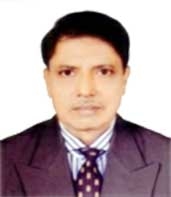
Dr. Forqan Uddin Ahmed :
The Corona epidemic is leaving a lasting scar on our education. When its invisible but deadly presence in March last year forced us to close all educational institutions, postpone or cancel exams, and invent alternative teaching-learning methods, it was understood that the epidemic would weigh on our current understanding of education. The fact that the educational institutions are closed – in an unrealistic uncertainty – is not yet to open their doors. If the epidemic does not end, it will be inappropriate to open it, we have to accept that.
Some aspects of the catastrophe caused by the epidemic have already become clear. Direct, classroom-based teaching has ceased. As a result, online teaching has started, but it has not reached 100 per cent of the students. A large part of the students are left out. This has led to widespread inequality, a manifestation of which we can describe as digital inequality. Online learning activities have pointed out the weaknesses of our schematic, memorized and teacher-centered education system. The epidemic has lost many families’ earnings. As a result, many students have dropped out. Some students in the village have tried to alleviate the misery of their families through manual labor. There is no guarantee that all of them will return to school. This was evident at the beginning of the epidemic. But the crisis has been somewhat resolved by the rise of the economy. A number of educational institutions have closed, and many teachers have lost their jobs. No government or private initiative has been taken to help them. They are also facing a kind of psychological problem. Students who are unable to participate in online learning are suffering from deprivation. Moreover, students are getting promotion to the upper classes without the exam. All these issues have a negative impact on the examinees.
We need to turn around and learn from the epidemic. If we gradually increase the allocation for education to 6 percent of GDP by 2030 and 8 per cent by 2040, then in another generation there will be a silent revolution in the development of talent, intellect, logic, science and technology in Bangladesh. It will be empowered by an up-to-date, progressive and forward-looking education policy that integrates education into a mainstream language, mathematics, science, culture and literature, environment, technology, ethics, aesthetics, social relations, gender sensitivity, diversity, responsibility, law and justice, Integrity of character and public health. All these will bring together the highest level of knowledge and practice.
An up-to-date education policy and funding will solve almost all current problems. It will be possible to ensure access to all facilities in educational institutions by gathering talented teachers, bringing co-educational activities closer to life – through which students will be able to develop their talents in culture, sports, etc. But education in an ideological position cannot be reached very easily or quickly. Therefore, there is no alternative to sound planning and improved management. Some of the benefits of sound management – be it in educational institutions or in government administration or in the corporate world – are easily and quickly found, which stand in a culture of constant practice.
The wind of change may not come in favor of education. Therefore, we have to adapt our education system to suit the current and changing situation and give priority to a people-oriented and action-oriented education policy – without the implementation of which Bengalis will never be economically liberated. With a sound education policy and its successful implementation, Bengalis will become efficient manpower and proper human resource development will also take place. Without education and human resource development, our progress will be hampered. Development will only float on paper. Therefore, we do not think that there will be any solution for real development in education and technology other than human resource development friendly environment and proper investment and policy incorporation. Let’s establish our national dignity by formulating a beautiful education policy and developing skilled human resources.
For smooth functioning of education, the control or responsibility may be given to the different ministries instead of a single ministry. The general education may be dealt by Education Ministry. Science aspects may have their control by the Ministry of Science and Technology. Again, culture and religious aspects may be dealt by Ministry of Culture and Religion respectively. Now curriculum or any ideal syllabuses have been yet to be prepared. So long, it has been treated very casual. Finally, the Education Ministry (Primary, Secondary, Higher Secondary, Technical, Madrasha including all relevant departments and stakeholders) may take the responsibility of their own job like curriculum, syllabus, policy-making etc. Above all coordination of different ministries is necessary and in fine we can say that, education sector may compensate its loss again, only when it will be revisited and prioritized by proper planning.
(Dr. Forqan is Former Deputy Director General, Bangladesh Ansar & VDP)

